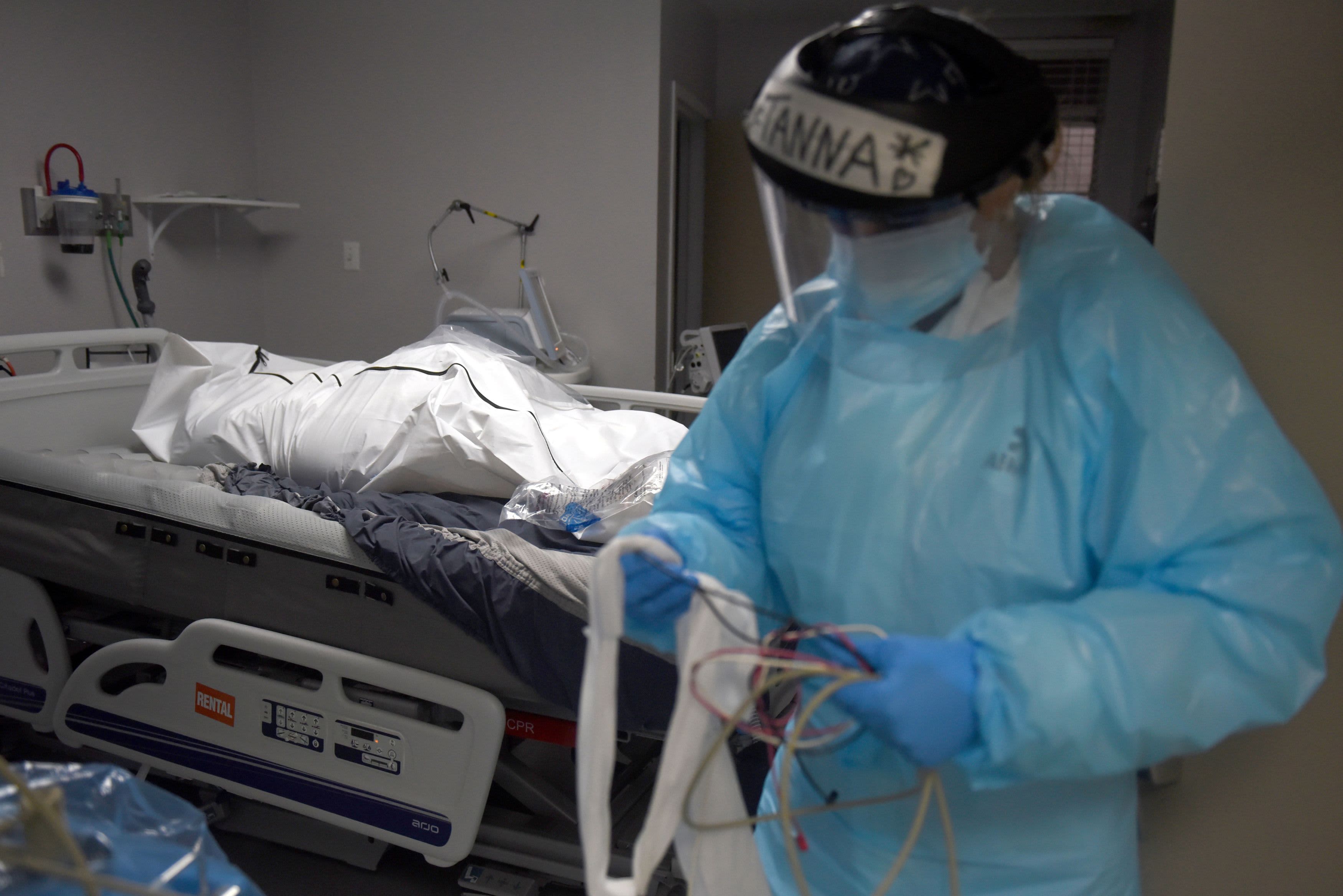A patient lies on a stretcher in a hallway near other patients in the overloaded Emergency Room at Providence St. Mary Medical Center amid a surge in COVID-19 patients in Southern California on January 5, 2021 in Apple Valley, California.
Mario Tama | Getty Images
Nearly 3,000 people in the U.S. are dying every day, on average, of Covid-19 as top health officials warn that the worst is yet to come.
The U.S. reported more than 3,400 Covid deaths on Friday, which spurred the seven-day average of daily new deaths to a record-high 2,983, up 19% compared with just one week ago, according to a CNBC analysis of data compiled by Johns Hopkins University.
Daily new cases are soaring to fresh highs, as well. Over the past week, the country has reported an average of more than 247,200 new cases every day, up 27% from a week ago, according to Hopkins data. Dr. Robert Redfield, director of the Centers for Disease Control and Prevention, said Friday the outbreak will get worse before it gets better, echoing comments made earlier this week by Dr. Anthony Fauci, director of the National Institute of Allergy and Infectious Diseases.
“We’re going to continue to see mortality in the 2,500-5,000 a day range,” Redfield told the McClatchy news agency in an interview. “This is going to continue to get worse through January, and probably parts of February before we really start to turn the corner.”
Cases are already rising substantially almost everywhere, as the country experiences a predicted surge in the virus caused by inter-state travel and family gatherings for holidays last month. Average daily new cases are up by at least 5% in 47 states, according to Hopkins data. Redfield warned Friday that the violent storming of the U.S. Capitol by supporters of President Donald Trump on Wednesday will make the outbreak worse.
“I do think you have to anticipate that this is another surge event. You had largely unmasked individuals in a non-distanced fashion, who were all through the Capitol,” he said. “Then these individuals all are going in cars and trains and planes going home all across the country right now. So I do think this is an event that will probably lead to a significant spreading event.”
Donald Trump supporters gathered to protest against the certification of Joe Biden as the winner of the presidential election, State capitol, St. Paul, Minnesota.
Michael Siluk | Universal Images Group | Getty Images
Redfield, who was appointed by Trump in 2018 to lead the nation’s premier health agency, will be replaced by Dr. Rochelle Walensky under President-elect Joe Biden.
With the outbreak growing more severe by the day, officials are racing to quickly distribute life-saving vaccine doses. The initial rollout has been slower than expected, but it’s showing signs of gaining speed. Dr. Nancy Messonnier, director of the CDC’s National Center for Immunization and Respiratory Diseases, said the distribution effort got off to a slow start partly because of the holidays, but the pace should pick up this month.
The U.S. administered nearly 800,000 shots in 24 hours, the CDC reported Friday, up from about 600,000 the day before and the most in a one-day period so far, according to the agency’s data. More than 22.1 million doses have been distributed, according to the data, but just 6.7 million have been administered.
Amid criticism of a slow initial rollout, HHS officials are now urging states to move beyond the first tier of prioritization. Health-care workers and residents of long-term care facilities are supposed to receive the vaccine first, according to guidance from the CDC. But HHS Secretary Alex Azar said earlier this week that states should open up to more old and vulnerable Americans if it will hasten the pace of the rollout. Food and Drug Administration Commissioner Dr. Stephen Hahn reiterated his comments on Friday.
Also adding to the pressure to quickly vaccinate is the arrival of a new strain of the virus. The new variant, known as B.1.1.7, which was first discovered in the United Kingdom, has now been found in at least seven states. While it does not appear to cause people to become more severely sick, CDC officials say they believe it spreads more easily. That could make the outbreak even worse and quickly overwhelm hospitals, CDC officials warned last week.
But states and hospitals are facing some substantial hurdles in administering the vaccine doses. State funding for vaccine distribution was only approved late last month and much of it has yet to trickle down to the facilities that desperately need money to ramp up workforce and digital record-keeping, for example.
